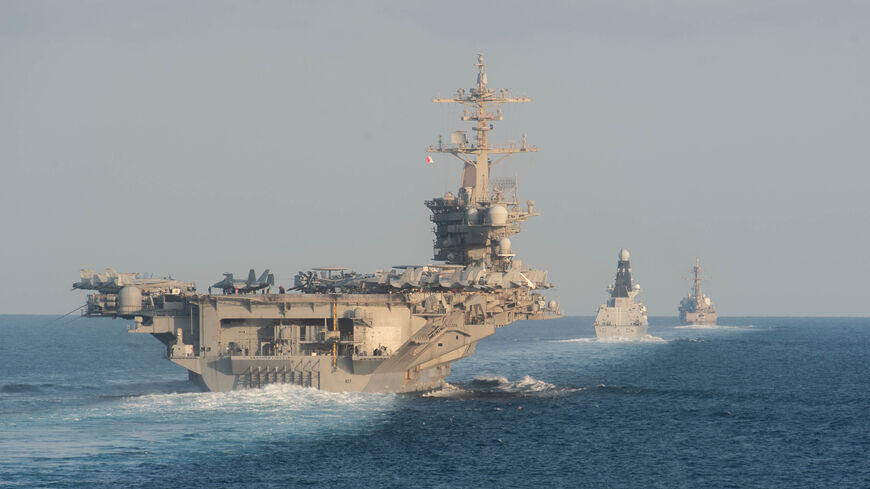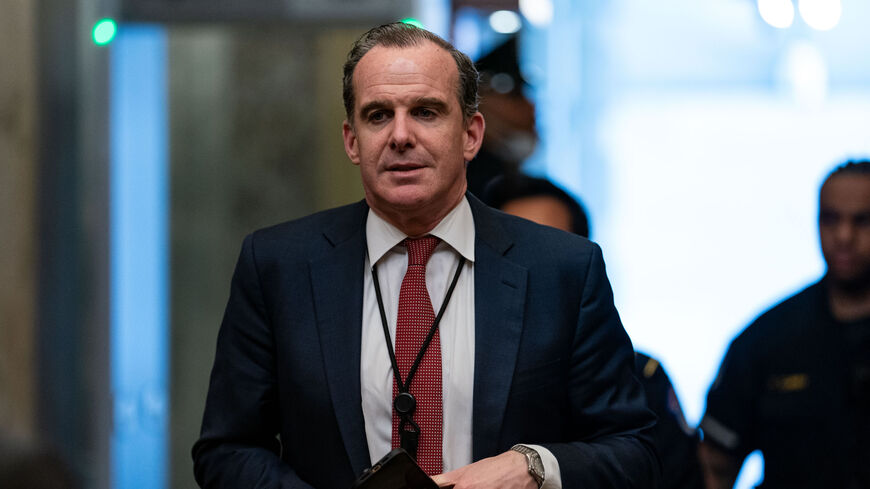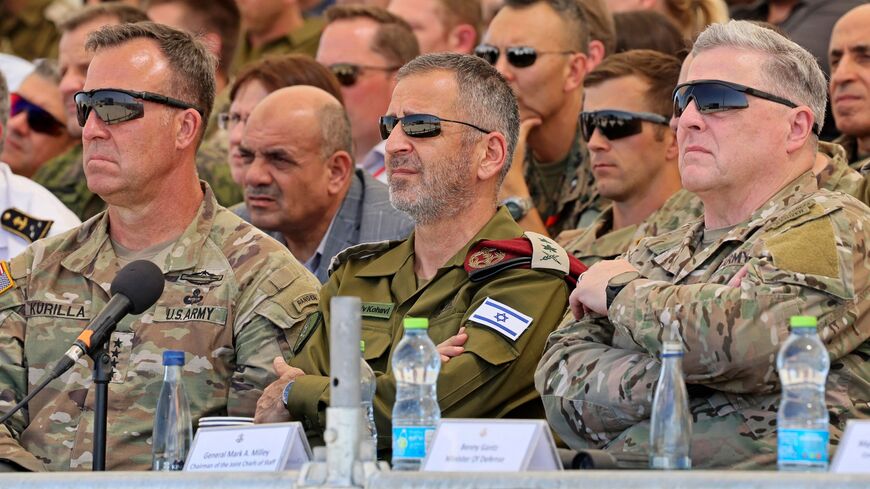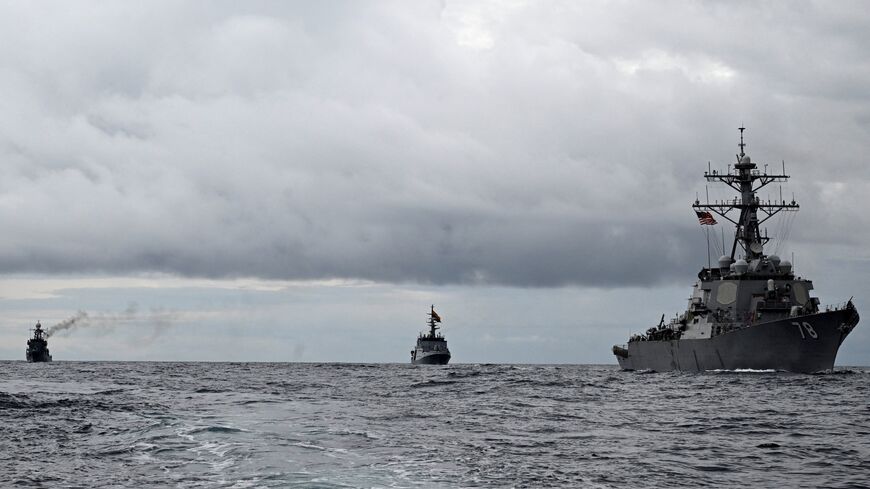'Several' US personnel injured in rocket attack on Iraq base
The Biden administration is downplaying the threat of a wider Middle East conflict to allow Western diplomats time to negotiate an off-ramp to expected Iranian retaliation against Israel for the assassination of Hamas' top political leader in Tehran last week.
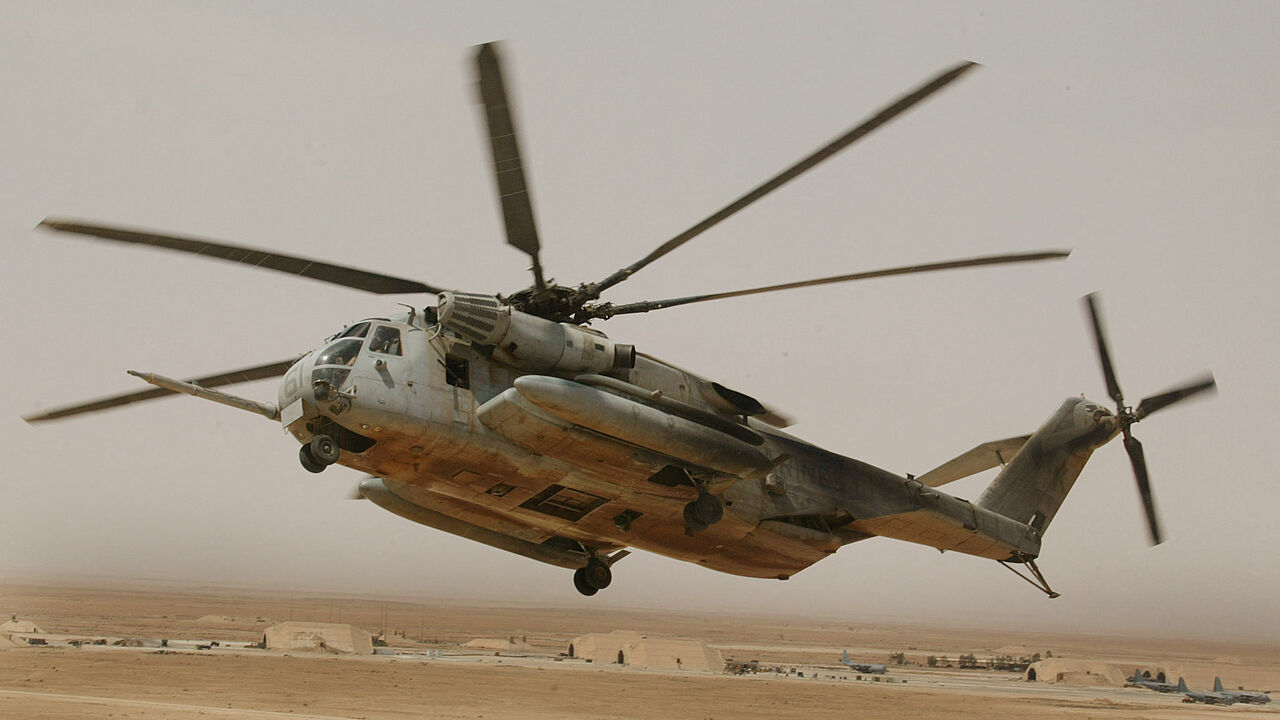
WASHINGTON — Several US personnel were injured in a suspected rocket attack on the al-Asad air base in western Iraq on Monday night, two US defense officials told Al-Monitor.
The incident marks the first attack confirmed by the Pentagon to have injured American troops in the region since a de facto truce set in in February between US forces and Iran-backed militias in Iraq and Syria.
Monday's rocket attack was not the first to target bases used by US troops in those countries since then. But it comes as the Pentagon and Israeli defense establishment, along with other military commands and armed groups in the region, are on edge over anticipated retaliation by Iran and its proxies against Israel for last week's assassination of Hamas leader Ismail Haniyeh in Tehran.
The rocket attack is likely to complicate the Biden administration's ongoing diplomatic efforts to avert the anticipated Iranian counterattack against Israel, which could spiral into a wider regional war.
What they're saying: A supposed group calling itself al-Thawraiyoun, or "the Revolutionaries" of the Iran-backed, self-styled Islamic Resistance front claimed credit on Telegram following the attack. Following a call with Israel's defense chief Yoav Gallant on late Monday, US Defense Secretary Lloyd Austin attributed the attack to unspecified "Iran-aligned militias."
A handful of Iran-backed groups in Iraq last week suggested they may retaliate for the killing of Haniyeh and a top Hezbollah commander by a separate Israeli strike in Beirut last week.
One militia, Harikat an-Nujaba, issued a statement last week warning that Israel and the United States had "opened the gates of hell upon themselves” due to the assassinations. The United States has denied involvement in both strikes, while Israeli leaders have neither confirmed nor denied any role in Haniyeh's assassination. US officials have said they believe Israel was behind the strike on the Hamas leader in Tehran.
The Biden administration has initiated a full-court press along with its allies to persuade Iran’s leaders not to retaliate against Israel. “The consensus position is that Iran should not take further action,” State Department spokesperson Matthew Miller told reporters.
US Secretary of State Antony Blinken on Monday cautioned that the world was watching the current “critical moment” in the region as Iran weighed its response.
The top diplomats from the G7 countries — which include the United States, Canada, France, Germany, Italy, Japan and the United Kingdom — released a statement on Monday expressing their "deep concern at the heightened level of tension in the Middle East which threatens to ignite a broader conflict in the region."
"We urge all involved parties once again to refrain from perpetuating the current destructive cycle of retaliatory violence, to lower tensions and engage constructively toward de-escalation," the statement read. "No country or nation stands to gain from a further escalation in the Middle East."
Yet US defense officials on Monday sought to downplay the risks of a broader outbreak of conflict across the Middle East, even as Washington has deployed more warships and advanced F-22 fighter jets to shield Israel and American troops in the region against expected attack.
“We still believe that a wider regional war is not imminent,” deputy spokesperson Sabrina Singh told a group of reporters gathered at the Pentagon on Monday morning.
Behind the scenes: US President Joe Biden spoke with Jordan’s King Abdullah on Monday in a bid to head off the expected Iranian attack, a day after Jordan’s foreign minister, Ayman al-Safadi, met with Iran’s newly elected President Masoud Pezeshkian in Tehran.
During Iran and its proxies’ previous retaliatory attack on Israel in April, the Royal Jordanian Air Force scrambled its own fighter jets to help intercept airborne drones and missiles fired over the kingdom and headed towards Israel.
The top US general overseeing troops in the Middle East, Gen. Michael “Erik” Kurilla, met with Israeli top brass in Tel Aviv on Monday to coordinate on joint defensive plans before continuing on to stops in other US-aligned countries in the region.
In a meeting with Gallant and IDF chief of staff Lt. Gen. Herzi Halevi, Kurilla discussed “expand[ing] the international coalition” to defend Israel and American personnel in the region, Gallant’s office said.
The big picture: Washington is attempting to play to Iranian leaders' interest in eventually rebuilding ties with the West in hope of averting a major escalation toward war.
“We don’t think it’s productive or conducive to anyone’s interest, including Iran’s, to conduct further actions, be they retaliatory or not," Miller said during a press briefing.
The timing and nature of the attack which Iran and its proxies intended to undertake remained unclear on Monday, but the Pentagon’s deployment of highly advanced F-22 fighter aircraft and additional navy destroyers underscored Washington’s concerns about a repeat of Iran’s large-scale drone and missile barrage towards Israel in April.
Iranian Foreign Ministry spokesman Nasser Kanaani on Monday said that his government aimed to reinforce “stability and security in the region” by establishing “deterrence against Israel and its adventurism.”
Kanaani further said Iran has the right to retaliate under international law for the alleged Israeli attack on Iranian soil but that Tehran does not want to see an escalation of violence in the region.
“I won't lay out what I expect Iran to do, because I don't think we want to show our hand in that way,” deputy US National Security Adviser Jon Finer said in an interview with ABC News on Sunday.
Back and forth: The Biden administration’s last-ditch attempts to avert escalation came as Israeli leaders openly suggested that their military forces were prepared to go on the offensive should they come under attack from Iran and its proxies.
“We are prepared for any scenario, both offensively and defensively,” Prime Minister Benjamin Netanyahu said on Sunday.
Defense Minister Yoav Gallant issued a similar warning after a meeting with Israeli Air Force commanders on Monday. “We must prepare for all possibilities — including a quick pivot to offense,” Gallant said in a statement released on social media.
Two US officials told Al-Monitor that the Pentagon has ruled out launching preemptive strikes against Iran and its proxies in defense of Israel. “We are not going to start this war,” one official said.
Yet American forces in the region will take action to defend Israel and themselves, the second official said. Last week a US military aircraft bombed a group of Kataib Hezbollah fighters who defense officials said were preparing to launch an attack drone in central Iraq, posing a threat to US-led coalition troops.
It was not immediately clear if the US military would retaliate for Monday night's rocket attack on the al-Asad Air Base in Iraq.
What’s next: US officials have been tight-lipped about which countries may contribute to a collective defense against the anticipated attack, which could come as soon as this week.
US defense chief Lloyd Austin on Friday signed off on the deployment of a second aircraft carrier to the region, the USS Abraham Lincoln, to replace another American carrier already in the Gulf of Oman. Austin also authorized an undisclosed number of F-22 Raptor fighter jets to head to the region, a US official confirmed to Al-Monitor. The deployment of F-22s was first reported by the New York Times.
“We do believe there is an off-ramp here, and it is that cease-fire deal,” Singh told reporters late last week.
Yet negotiations between Israel and Hamas over a cease-fire in Gaza in exchange for release of hostages have been put on hold in anticipation of Iranian attack, the Times of Israel reported on Monday. Al-Monitor has not independently confirmed the report.
“Nothing that’s happened over the past week has done anything to erode the fundamental agreement on the framework to this cease-fire. That stands,” State Department spokesperson Miller told journalists on Monday.



